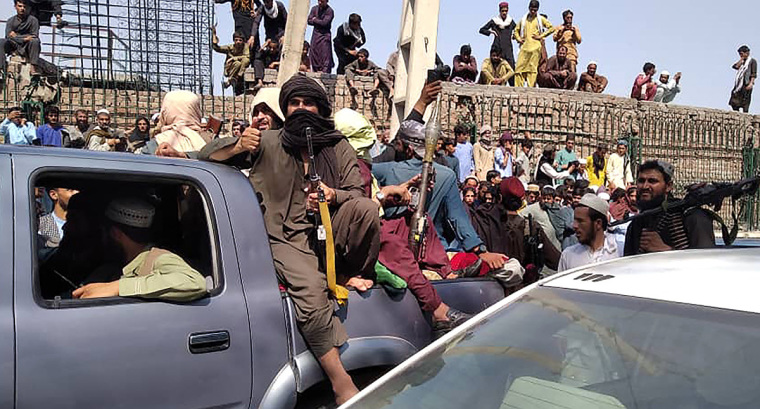
Washington thought Afghanistan was a fixer upper. But after spending trillions of dollars and thousands of lives trying to improve it, the messy capitulation has stunned and embarrassed Americans who want to know what went wrong. However, let’s ask another question about Afghanistan: why is it so poor?
Per capita gross domestic product (GDP) is the most common measure of standards of living used by economists. This year GDP per capita was $592 for Afghanistan, compared to $35,672 in the U.S. That makes Afghanistan one of the poorest countries in the world. Of course, we Boomers will remember that this poor country has been at war since Soviet armies were invited to rule in 1980. Over 40 years of war will tend to give a place a run-down appearance.
In the summer of 1976, I worked with others to smuggle Bibles into Afghanistan from Iran. Iran was poor by U.S. standards, and I had been to Mexico several times, but I had never witnessed the extreme poverty that I found in Afghanistan. Even in 1980, the per capita GDP was $273 compared to $12,575 for the US. None of these figures have been adjusted for inflation.
That doesn’t mean Afghanistan has no wealthy people. A tiny group of war lords and government officials are wealthy even by western standards. As with most poor countries, a tiny group of wealthy dominate a mass of nearly starving people. Why?
Jerry Bowyer’s book, The Maker Versus the Takers: What Jesus Really Said About Social Justice and Economics is not about Afghanistan, but it explains that country’s poverty as well as it does that of Israel in Jesus’ day. I would argue that no one can understand the New Testament teachings on wealth and money without having read the book. So, if someone tries to tell you that the NT teaches a certain doctrine on wealth, first ask them if they’ve read Bowyer’s book. If not, walk away. They’re too ignorant to have a fruitful conversation with.
Bowyer analyzes the Galilean economy, the makers, and the Judean economy, the takers. Galilee consisted mostly of small farms, manufacturing and commercial businesses run by their owners. It was entrepreneurial and less poor than Judah. That’s why God gave Joseph the wisdom to locate his family there.
Joseph was a carpenter, but he was much more. He was closer to a contractor today who oversees many aspects of large construction projects. He may have even built the boats that Peter and other Apostles used to fish the sea. Jesus would have worked at least 15 years with his father in the business and assumed the leadership after Joseph died, before He began His ministry, which is the reason Jesus demonstrated such detailed knowledge of business and the construction industry.
Judah was very different from Galilee. It had large farms, what in economic development are called “latifundia.” Latifundia usually had wealthy absentee owners who live in the nearest big city, in Judah’s case, Jerusalem. In Rome, slaves worked the latifundia. The owners acquired those large estates as rewards for service to the state. In other words, the state took someone’s property who lost favor with the state and gave it to them.
Before the advent of capitalism in the 17th century, the respected means of getting wealth if someone didn’t inherit it was through plunder in war, kidnapping for ransom, and as a reward for being politically well-connected. Israel in Jesus’ day was no different. Another common practice was to charge poor farmers high interest rates on loans to buy seed or oxen. When the farmer couldn’t repay the loan, the lender foreclosed and took the property. Such lenders violated the Torah’s prohibition of charging interest on loans to the poor and the seven-year debt forgiveness and Jubilee laws. They kept their wealth in the treasury of the Jerusalem Temple, which doubled as a bank.
As Bowyer points out, Jesus’ teachings on wealth when he was in Galilee changed when he visited Judah. His condemnations of the rich come while in Judah. Bowyer wrote,
“Jesus never had a single confrontation about wealth while in Galilee. Every one of His confrontations over wealth occurs in or near Judea, and they grow in intensity as He comes closer to and finally enters Jerusalem.
The Maker Versus the Takers: What Jesus Really Said About Social Justice and Economics
This explains why Jesus told the rich young ruler to sell all he had and give it to the poor, the only passage in the Bible that socialists know. Bowyer calls him a senator because the Greek word for ruler, archon, implies that he was a member of Israel’s ruling council, the Sanhedrin. As Bowyer wrote,
“This ruler, like most of the rest of the ruling class, was indeed defrauding. Whom were they defrauding? The poor, who were powerless and therefore ill-equipped to protect themselves from being defrauded. That’s why Jesus command him to give his wealth to the poor: it was taken from the poor.”
The Maker Versus the Takers: What Jesus Really Said About Social Justice and Economics
Also, Jesus knew that within a generation, Roman armies would destroy Jerusalem and its temple and steal all the wealth the nobility had stolen and stored there. Did the young ruler reject Jesus’ offer of the kingdom only to lose everything to the Romans?
And what does any of this have to do with Afghanistan? Economists Daron Acemoglu and James A. Robinson Demonstrate in their book, Why Nations Fail: Origins of Power, Poverty and Prosperity, that nations in which people become wealthy through production as Galilee did, are prosperous. But those countries in which the nobility enrich themselves by preying on the poor as Judah did, remain impoverished.
Afghanistan has always followed the model of Judah.
No comments:
Post a Comment